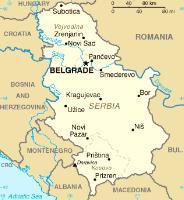SARAJEVO, Bosnia and Herzegovina -- Apparently, this is a year for close referendums in the Balkans. Earlier this year, Montenegrins voted for independence from Serbia with a 0.5 percent margin of victory. The "yes" vote needed to be 55 percent for the tiny republic to become an independent state. The "yes" campaign carried the day with 55.5 percent. On the weekend of Oct. 28-29, the citizens of Serbia voted in a referendum to approve Serbia's first non-communist constitution in 60 years. It was another close one. For the constitution to be approved, at least 3.3 million people needed to vote for it, or 50 percent plus one vote. Some 6.6 million people were registered to vote in the referendum. According to Serbia's Election Commission, 51.4 percent of the electorate voted to approve the new charter. The statisticians have calculated that the margin of victory was about 100,000 votes. The lawyers have pointed out that this is Serbia's 13th constitution in two centuries of Serbian statehood, with an average life of 16 years each. The most important and most controversial part of the new constitution is its preamble, which enshrines Kosovo as an "inalienable part of Serbia." This comes at a time when the U.N.-sponsored talks on the future of the Albanian-majority province are nearing their end. Kosovo has remained a U.N. protectorate since June 1999, after NATO fought a 78-day air campaign against Slobodan Milosevic's forces. U.N. Security Council Resolution 1244, which established the protectorate, stated that Kosovo is formally a part of Serbia, but also said Kosovo's "final status" would be determined at a later date.
Kosovo’s Status Potential Flashpoint in Balkans

